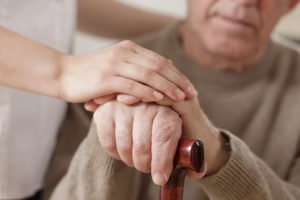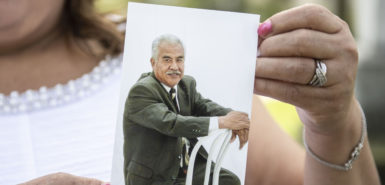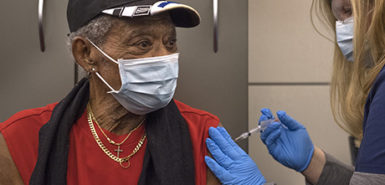
Have friends and family remarked about how tired you look lately? Do you battle insomnia or feel utterly exhausted in the mornings?
Ever experience fluctuations in appetite—eating too much some days, or not eating at all?
“These can all be signs of caregiver burnout,” said Martha Thormeier, LMSW, a psychotherapist at Spectrum Health Medical Group Neurology and Clinical Neuropsychology.
Thormeier specializes in helping those dealing with dementia, whether as patients or their caregivers.
“Caregivers don’t often recognize burnout in themselves,” she said. “But it’s important to care for your own health, too. If something happens to you, it happens to the people you are caring for, too.”
Some other possible signs of caregiver burnout:
- Isolation. It can feel like it’s you against the world—and the world is heavier than ever on your shoulders.
- Illness. You seem to be getting sick more often. Maybe sniffles, an infection that won’t go away or a nasty bout of flu.
If you’re a caregiver and you’re battling some of these symptoms, Thormeier recommends you find someone to talk to—a therapist, a support group, a family member or a friend.
“Because of the COVID-19 pandemic, many virtual support groups are now available,” Thormeier said. “And we also offer telehealth therapy sessions at Spectrum Health.”
“It’s an especially hard time because so many adult day care centers, senior centers and congregate meals are closed now,” she said. “Human contact is more limited, but it’s still available with the help of technology.”
Caregiving is associated with high rates of anxiety and depression, increased use of psychotropic medications, worsening physical health and compromised immune function, according to the Centers for Disease Control and Prevention. It can even contribute to an early death.
An estimated 40% to 70% of caregivers experience depression, according to the CDC—and more than half report a decline in their own health.
The upside of caregiving
Many caregivers get a deep sense of fulfillment by tending to others, and caring for loved ones can bring a sense of feeling useful and needed, Thormeier said.
About 41 million caregivers in the U.S. provide $470 billion in unpaid care and assistance, according to a report issued by the AARP Public Policy Institute.
That’s a lot of people—and the need will only swell as the number of people age 65 and older is on track to double in the three decades from 2000 to 2030.
That means scores of caregivers will need to remain healthy, too.
Thormeier offers these recommendations:
- Take breaks each day for some “me time,” whether it’s exercise, reading, meditations or hobbies.
- Stay connected with friends and family through phone calls and virtual options.
- Take care of your own health care needs first.
- Consider an online support group. A wealth of information is available through the Caregiver Resource Network in West Michigan.
- Maintain adequate nutrition and sleep.
- Talk with a counselor or therapist to ease stress.
- Keep a consistent schedule.
- Engage in activities with the person you’re providing care. Choose things that bring meaning and joy, such as looking through old photos, sharing a favorite story or watching a favorite movie.
- Start each day by naming three things for which you are grateful.
- Call on friends and family for more support. Don’t be afraid to ask for help.
- Find support at our COVID-19 Resource Center.
Respite for the weary
Caregivers should seek therapy sessions that provide respite, a sense of support and guidance on how to handle the stresses of caregiving.
Thormeier recommends asking a physician for a referral to get started.
“We offer 45 minutes to hour-long sessions,” she said. “Most insurance policies cover that and we can help both the caregiver and the person receiving care, or both together.
“If you are participating in a teletherapy session, find a quiet space close to your Wi-Fi connection where you won’t be distracted.”
As the COVID-19 pandemic increases its reach, Thormeier said she hears increasingly from patients about the stresses and strains of living in isolation.
“Isolation is No. 1, but anxiety about getting COVID-19 comes next,” Thormeier said. “Third is the stress of losing a loved one.”
Doctors aren’t just a source for a referral to a therapist. They can also guide you to helpful resources near your home and workplace, such as community groups and organizations that help aging populations.
“Let your doctor know that you are a caregiver,” she said.
Another excellent resource is the National Association of Area Agencies on Aging.
“Just put in your locality and you’ll find help nearby,” Thormeier said. “Remember, it’s not selfish to take care of yourself, too. After all, your loved one depends on you to stay healthy.”

 /a>
/a>
 /a>
/a>
 /a>
/a>